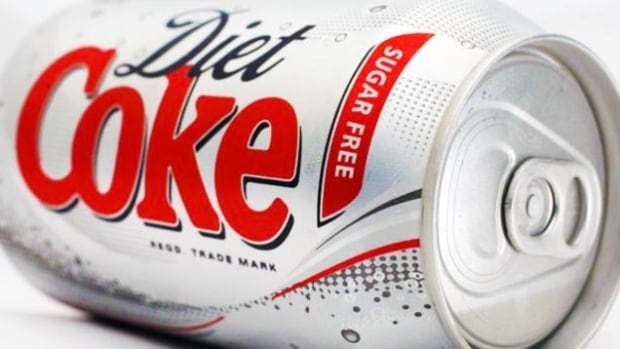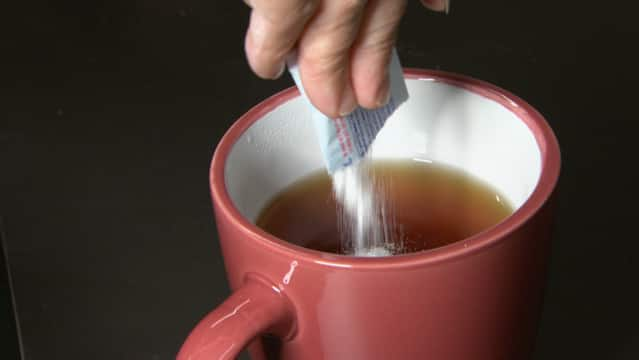WHO to declare synthetic sweetener aspartame a doable most cancers threat, sources say
[ad_1]
One of many world’s most typical synthetic sweeteners is about to be declared a doable carcinogen subsequent month by a number one world well being physique, based on two sources with information of the method, pitting it towards the meals business and regulators.
Aspartame, utilized in merchandise from Coca-Cola weight loss program soda to Mars’ Additional chewing gum and a few Snapple drinks, will likely be listed in July as “presumably carcinogenic to people” for the primary time by the Worldwide Company for Analysis on Most cancers (IARC), the most cancers analysis arm of the World Well being Group (WHO), the sources mentioned.
The IARC ruling, finalized earlier this month after a gathering of the group’s exterior consultants, is meant to evaluate whether or not one thing is a possible hazard, based mostly on all the printed proof.
It doesn’t take note of how a lot of a product an individual can safely eat. This recommendation for people comes from a separate WHO skilled committee on meals components, often known as JECFA (the Joint WHO and Meals and Agriculture Group’s Skilled Committee on Meals Components), alongside determinations from nationwide regulators.
Nevertheless, related IARC rulings prior to now for various substances have raised issues amongst customers about their use, led to lawsuits and pressured producers to recreate recipes and swap to options. That has led to criticism that the IARC’s assessments may be complicated to the general public.
JECFA, the WHO committee on components, can also be reviewing aspartame use this yr. Its assembly started on the finish of June and is because of announce findings on the identical day that the IARC makes public its determination — on July 14.
Since 1981, JECFA has mentioned aspartame is secure to eat inside accepted each day limits. For instance, an grownup weighing 60 kg (132 kilos) must drink between 12 and 36 cans of weight loss program soda — relying on the quantity of aspartame within the beverage — every single day to be in danger. Its view has been extensively shared by nationwide regulators, together with in america and Europe.
The Dose16:06Is it time to chop out synthetic sweeteners?
A brand new, decade-long research printed within the British Medical Journal suggests synthetic sweeteners like aspartame and sucralose may put us at higher threat of cardiovascular ailments. This research joins many others with related unfavourable findings. Leslie Beck, a registered dietitian and columnist, breaks down the potential dangers of the sugar substitutes.
An IARC spokesperson mentioned each the IARC and JECFA committees’ findings have been confidential till July, however added they have been “complementary,” with the IARC’s conclusion representing “the primary elementary step to know carcinogenicity.” The components committee “conducts threat evaluation, which determines the chance of a particular sort of hurt (e.g. most cancers) to happen below sure situations and ranges of publicity.”
Nevertheless, business regulators worry that holding each processes at about the identical time might be complicated, based on letters from U.S. and Japanese regulators seen by Reuters.
“We kindly ask each our bodies to co-ordinate their efforts in reviewing aspartame to keep away from any confusion or issues among the many public,” Nozomi Tomita, an official from Japan’s Ministry of Well being, Labour and Welfare, wrote in a letter dated March 27 to WHO’s deputy director basic, Zsuzsanna Jakab.
The letter additionally referred to as for the conclusions of each our bodies to be launched on the identical day, as is now occurring. The Japanese mission in Geneva, the place WHO relies, didn’t reply to a request for remark.
Debate over well being impacts
The IARC’s rulings can have a huge effect. In 2015, its committee concluded that glyphosate is “in all probability carcinogenic.” Years later, whilst different our bodies just like the European Meals Security Authority (EFSA) contested this, firms have been nonetheless feeling the consequences of the choice. Germany’s Bayer in 2021 misplaced its third enchantment towards U.S. courtroom verdicts that awarded damages to prospects blaming their cancers on use of its glyphosate-based weedkillers.
The IARC’s choices have additionally confronted criticism for sparking useless alarm over hard-to-avoid substances or conditions. It has 4 completely different ranges of classification: carcinogenic, in all probability carcinogenic, presumably carcinogenic and never classifiable. The degrees are based mostly on the energy of the proof, fairly than how harmful a substance is.
The primary group contains substances from processed meat to asbestos, which all have convincing proof displaying they trigger most cancers, the IARC says.
Working in a single day and consuming crimson meat are within the “possible” class, which suggests that there’s restricted proof these substances or conditions may cause most cancers in people and both higher proof displaying they trigger most cancers in animals, or robust proof displaying that they’ve related traits as different human carcinogens.
The “radiofrequency electromagnetic fields” related to utilizing cellphones are “presumably cancer-causing.” Like aspartame, this implies there’s both restricted proof they will trigger most cancers in people, adequate proof in animals or robust proof in regards to the traits.
The ultimate group — “not classifiable” — means there’s not sufficient proof.
A brand new assessment means that sweetener advantages are onerous to digest
“IARC is just not a meals security physique, and their assessment of aspartame is just not scientifically complete and relies closely on extensively discredited analysis,” Frances Hunt-Wooden, secretary basic of the Worldwide Sweeteners Affiliation, mentioned.
The physique, whose members embrace Mars Wrigley, a Coca-Cola unit and Cargill, mentioned it had “severe issues with the IARC assessment, which can mislead customers.”
The Worldwide Council of Drinks Associations’ govt director, Kate Loatman, mentioned public well being authorities needs to be “deeply involved” by the “leaked opinion,” and in addition warned it “may needlessly mislead customers into consuming extra sugar fairly than selecting secure no- and low-sugar choices.”
Aspartame has been extensively studied for years. Final yr, an observational research in France amongst 100,000 adults confirmed that individuals who consumed bigger quantities of synthetic sweeteners — together with aspartame — had a barely greater most cancers threat.
It adopted a research from the Ramazzini Institute in Italy within the early 2000s, which reported that some cancers in mice and rats have been linked to aspartame.
Nevertheless, the primary research couldn’t show that aspartame induced the elevated most cancers threat, and questions have been raised in regards to the methodology of the second research, together with by EFSA, which assessed it.
Aspartame is permitted to be used globally by regulators who’ve reviewed all the out there proof, and main meals and beverage makers have for many years defended their use of the ingredient. The IARC mentioned it had assessed 1,300 research in its June assessment.
Latest recipe tweaks by comfortable drinks large Pepsico show the wrestle the business has relating to balancing style preferences with well being issues. Pepsico eliminated aspartame from sodas in 2015, bringing it again a yr later, solely to take away it once more in 2020.
Itemizing aspartame as a doable carcinogen is meant to encourage extra analysis, mentioned the sources near the IARC, which is able to assist businesses, customers and producers draw firmer conclusions.
However it’ll additionally seemingly ignite debate as soon as once more over the IARC’s function, in addition to the security of sweeteners extra usually.
Final month, WHO printed pointers advising customers to not use non-sugar sweeteners for weight management. The rules induced a furor within the meals business, which argues they are often useful for customers wanting to scale back the quantity of sugar of their weight loss program.


